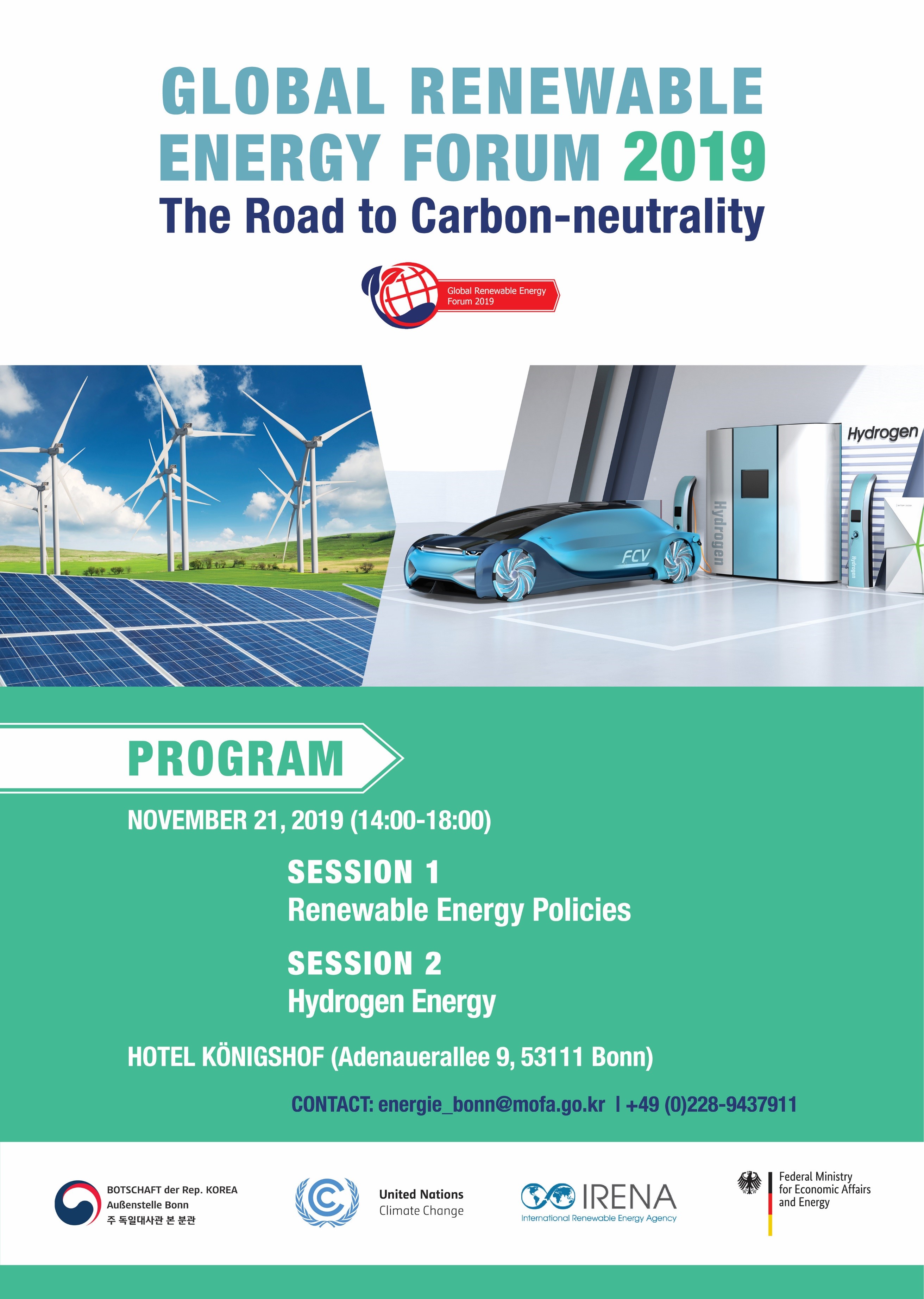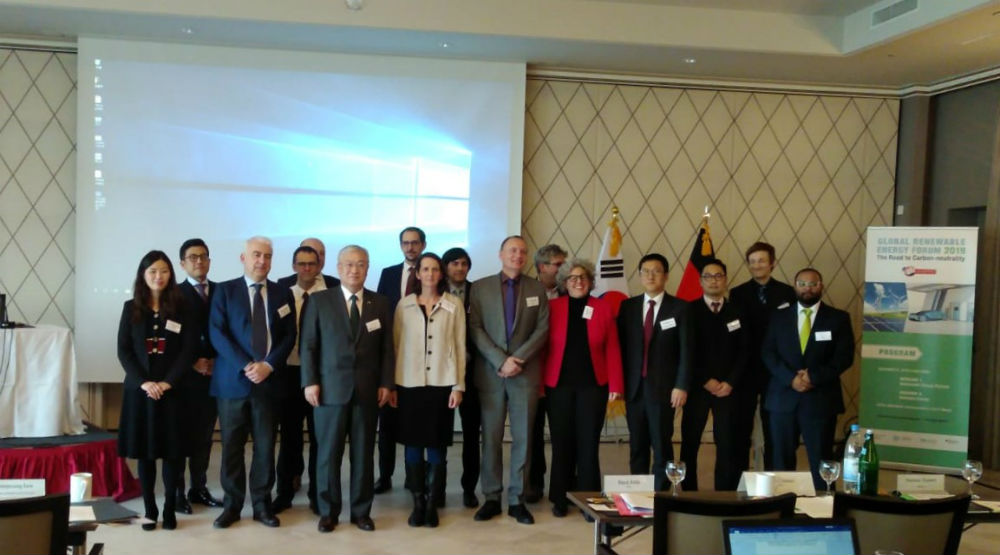
Global Renewable Energy Forum 2019: The Road to Carbon-neutrality

The 2019 edition of the Global Renewable Energy Forum (GREF) is co-organised by the Embassy of the Republic of Korea, Bonn Office, the International Renewable Energy Agency (IRENA), the UN Climate Change Secretariat (UNFCCC), and the German Federal Ministry for Economic Affairs and Energy.
The IPCC special report of October 2018 and subsequent reports made clear that the world is not on track to keep global temperature increase as close as possible to 1.5°C in line with the Paris Agreement. Greenhouse gas emissions have to peak soon and must be drastically decreased afterwards and carbon-neutrality must be achieved by mid-century. The recently signed MoU between IRENA and UNFCCC underscores the key importance of renewables to mitigate climate change.

Hydrogen is receiving much attention in the context of the global energy transition towards a sustainable and clean energy future. Hydrogen as a fuel could help to decarbonise end-use sectors that would be otherwise difficult to address through electrification. In addition, hydrogen could also enhance sector coupling between the electricity supply and end-use sectors industry, buildings and transport. Production of green hydrogen from renewables can add new flexibility, which facilitates the integration of higher shares of variable renewable sources (wind and solar PV).
Against this backdrop, and in line with the global focus of 2019 to strongly raise ambition in greenhouse gas emissions reductions, the overall focus of GREF 2019 was on pathways towards carbon-neutrality by 2050. In this regard, the event analysed the current status of renewable energy policies and decarbonisation pathways from different perspectives and highlight the role of hydrogen and power-to-x pathways — focusing on improving the understanding of hydrogen ‘as a low-carbon technology option’ and analysing the existing barriers and solutions needed to accelerate its deployment. The event also addressed various aspects of hydrogen as an important component to transit the planet to a sustainable energy future and towards achieving carbon-neutrality by 2050 in line with the Paris Agreement temperature goal.
See the event's agenda.
